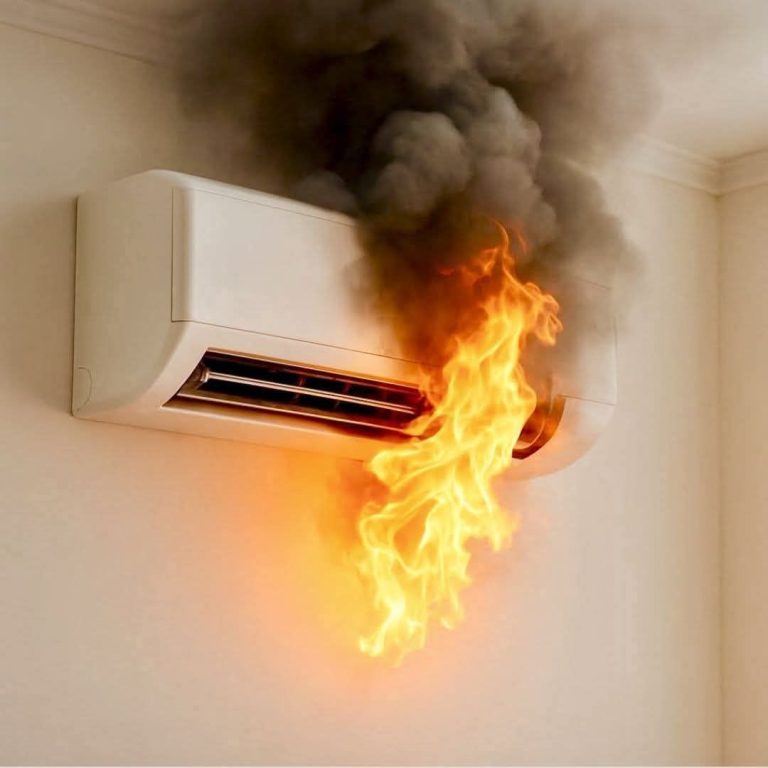ADVERTISEMENT
Air conditioning systems are essential for comfort in homes and businesses, but they can pose serious fire and explosion risks if not properly maintained or installed. Understanding these hazards is crucial for preventing dangerous incidents that could result in property damage, injury, or loss of life. Here are the five most important causes of fires and explosions in air conditioning units.
1. Electrical Malfunctions and Faulty Wiring
Electrical issues are the leading cause of air conditioner fires. Faulty wiring, loose connections, and overloaded circuits can generate excessive heat, leading to sparks and ignition. Common electrical problems include damaged power cords, corroded connections, and improper installation of electrical components. When electrical systems fail, they can cause arcing, which produces intense heat capable of igniting nearby materials. Regular electrical inspections and professional installation are essential to prevent these hazards.
2. Refrigerant Leaks and Improper Handling
Modern air conditioners use refrigerants that, while generally safe when contained, can become dangerous if they leak or are improperly handled. Some refrigerants are flammable, and when they escape from the system, they can create an explosive atmosphere if exposed to ignition sources. Additionally, when refrigerants come into contact with open flames or hot surfaces, they can decompose into toxic gases. Proper refrigerant handling, leak detection, and professional servicing are critical for preventing these incidents.
3. Overheating Components and Poor Ventilation
Air conditioning systems generate heat during operation, and inadequate ventilation can cause components to overheat. When compressors, motors, or other mechanical parts operate beyond their designed temperature limits, they can ignite surrounding materials or cause internal failures that lead to fires. Blocked air vents, dirty filters, and obstructed outdoor units restrict airflow, contributing to overheating. Regular cleaning and ensuring proper ventilation around AC units are vital preventive measures.
4. Dirty Filters and Accumulated Debris
See next page…
ADVERTISEMENT
